If you’re considering renting out your property, the choice between Airbnb hosting and long-term renting can be daunting. However, Airbnb offers numerous advantages that can lead to higher returns, greater flexibility, and a more enjoyable hosting experience. In this guide, we will explore essential Airbnb hosting tips that will help you understand why Airbnb might be the smarter option for your rental property.
Table of Contents
- Step 1: Understand the Higher Returns
- Step 2: Enjoy Frequent Access to Your Property
- Step 3: Address Maintenance Issues Promptly
- Step 4: Benefit from Regular Cleaning
- Step 5: Take Advantage of Tax Benefits
- Step 6: Leverage Airbnb Host Protection Insurance
- Step 7: Flexibility in Hosting
- Step 8: Enjoy the Community and Experience
- Step 9: Understand the Risks and Responsibilities
- Step 10: Engage with Your Guests
- Frequently Asked Questions (FAQs)
Step 1: Understand the Higher Returns
One of the most compelling reasons to choose Airbnb is the potential for significantly higher returns. Many hosts report earning two to three times the revenue compared to traditional long-term renting.
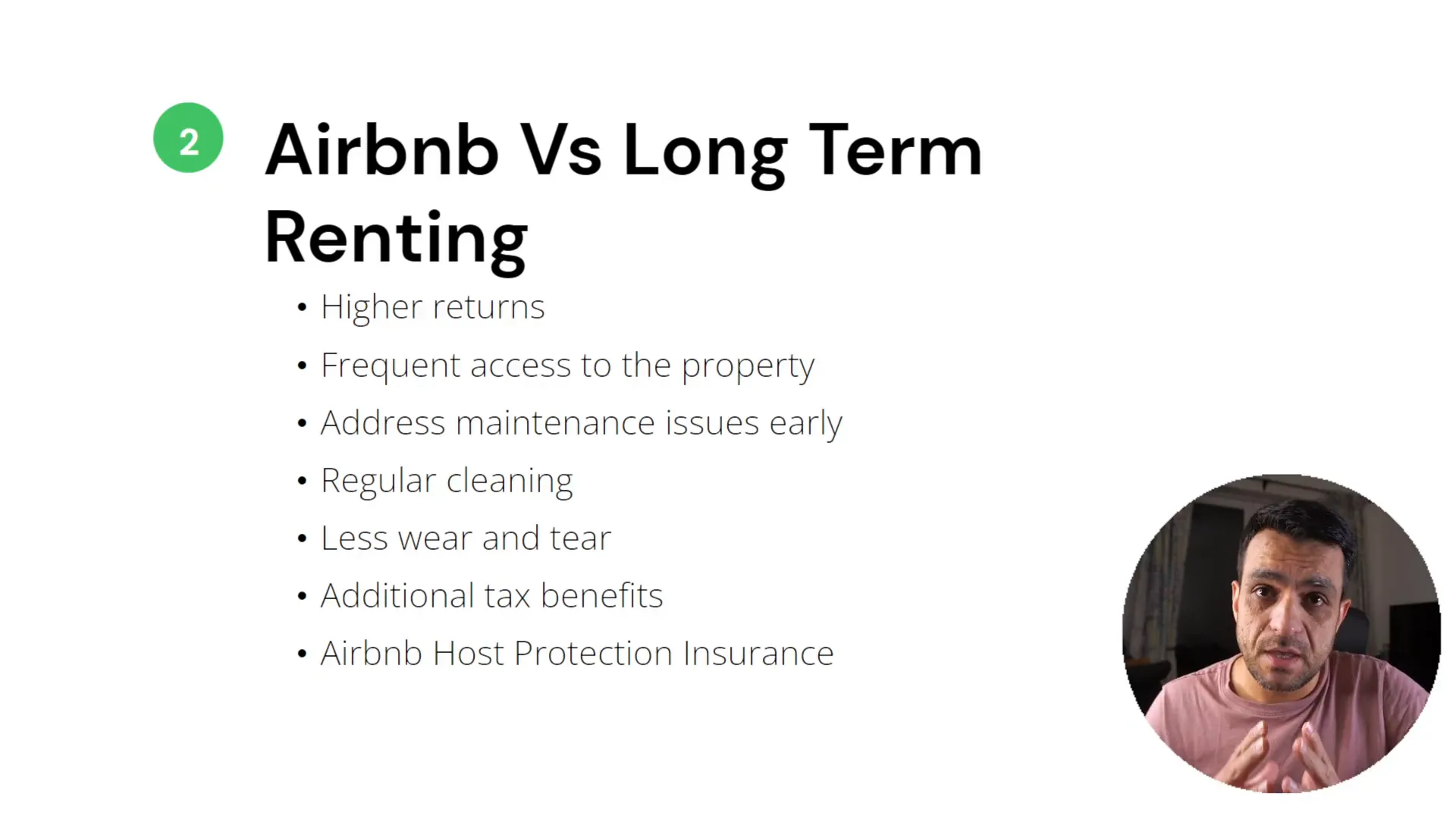
This isn’t just anecdotal; it’s a trend observed across various locations worldwide. If you manage your property effectively, it’s reasonable to expect similar returns. This financial incentive is often the initial push for many landlords to switch to short-term rentals.
Step 2: Enjoy Frequent Access to Your Property
Another key advantage of Airbnb hosting is the frequent access you have to your property. Unlike long-term tenants, guests come and go, allowing you to visit your property regularly.
You can check in during cleaning hours or even block the calendar to use the property yourself or accommodate friends and family.
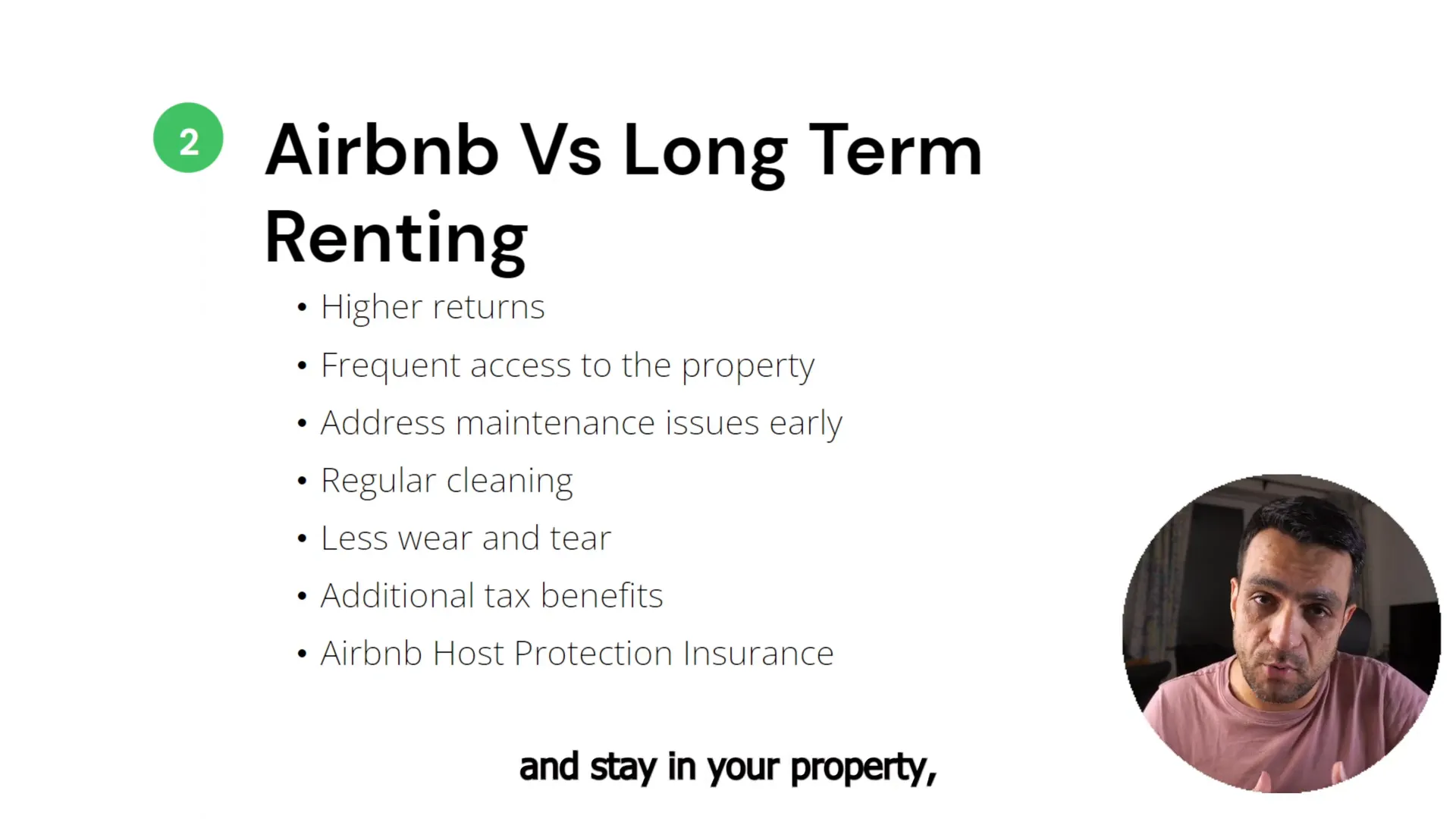
This flexibility is invaluable, especially if you have personal ties to the property or want to ensure it remains in excellent condition.
Step 3: Address Maintenance Issues Promptly
With frequent guest turnover and regular cleaning, you can quickly identify and address maintenance issues. You won’t have to rely on tenants to report small problems that could escalate into significant repairs.
Guests will often notify you immediately about any issues they encounter, allowing for swift action.
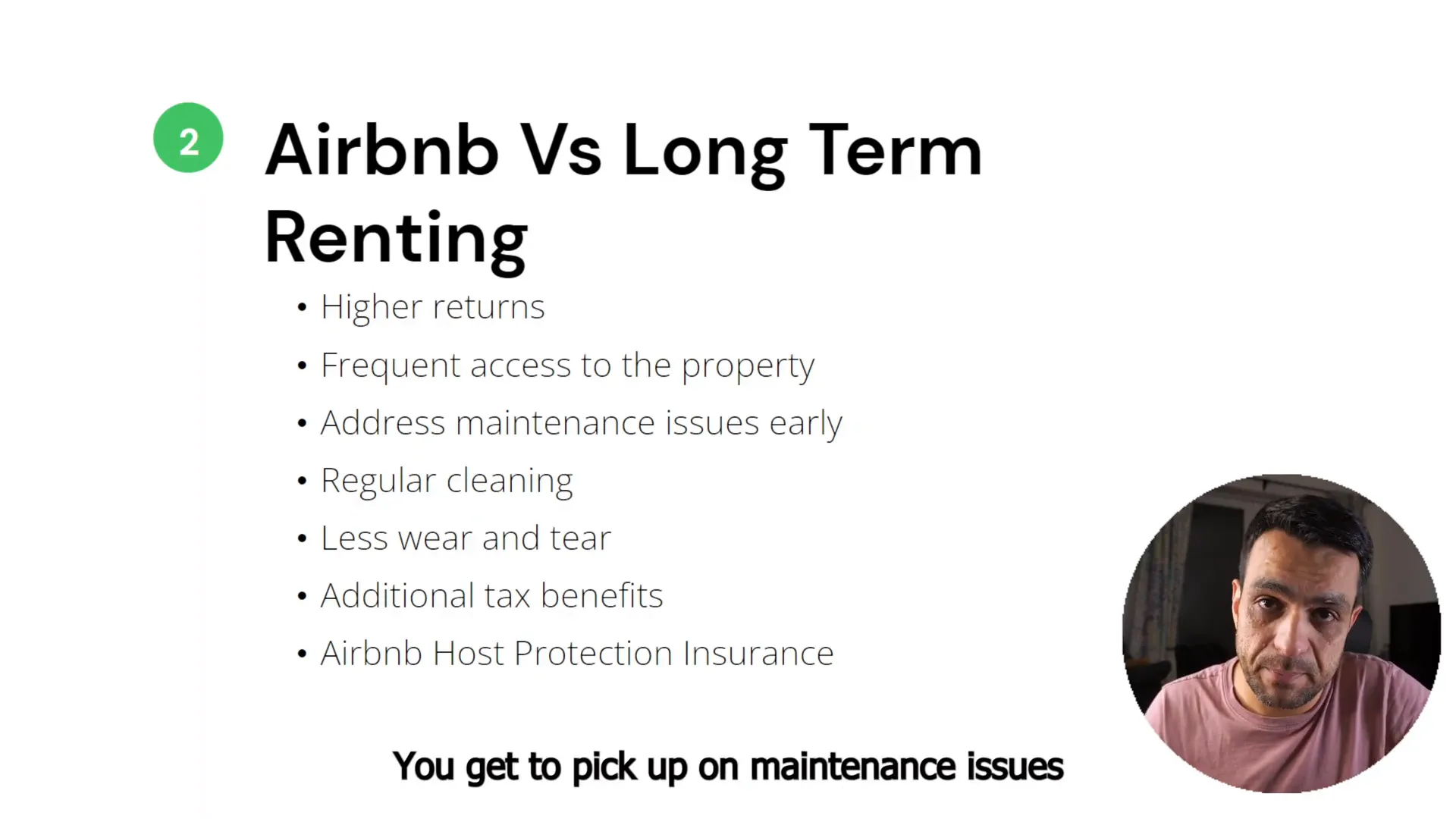
This proactive approach helps maintain the property’s condition and can prevent costly repairs down the line.
Step 4: Benefit from Regular Cleaning
Every time a guest checks out, the property is cleaned, ensuring it remains in good shape. This regular upkeep can lead to less wear and tear compared to long-term rentals, where the property may not be cleaned as frequently.
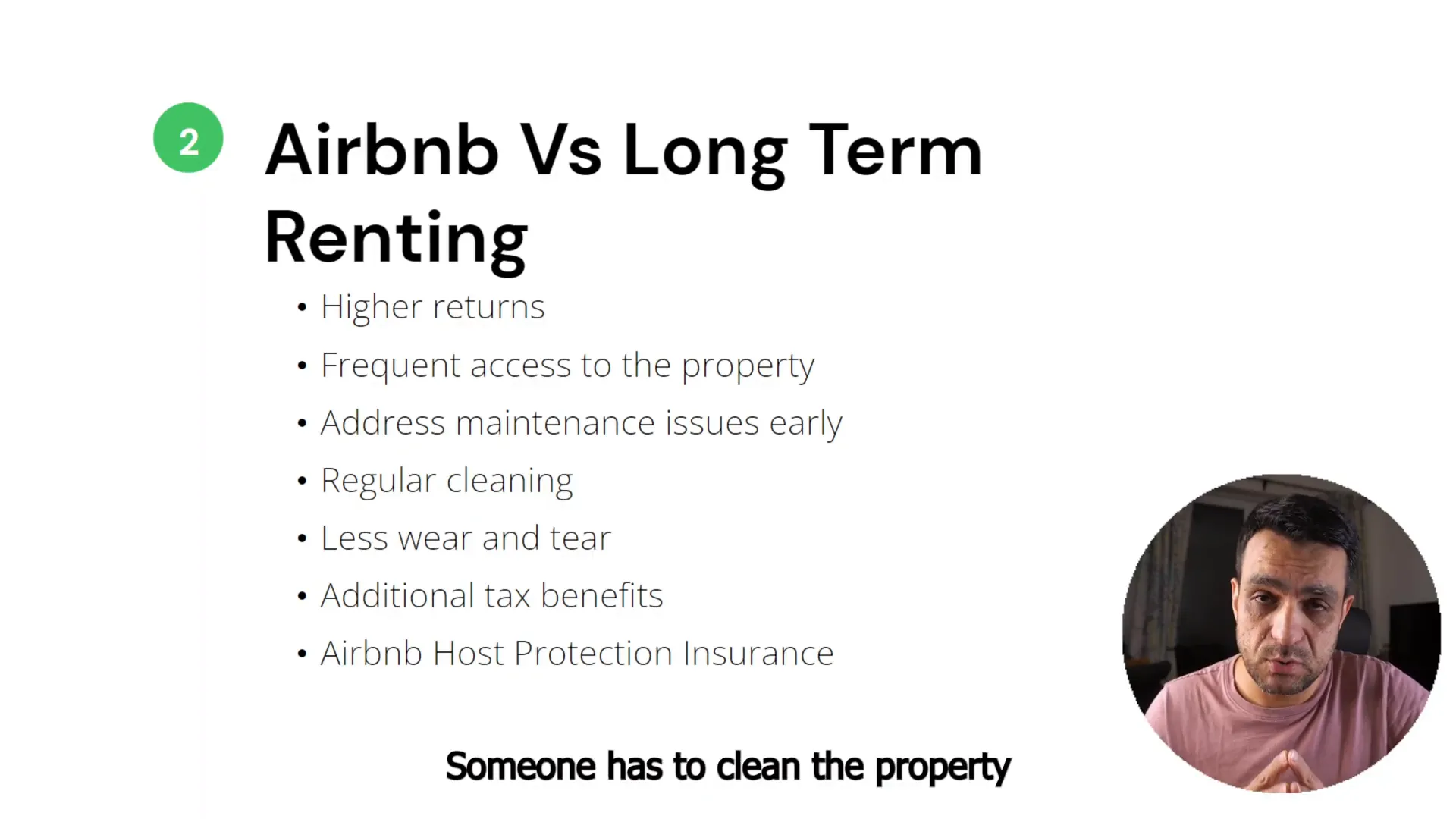
Guests tend to spend more time outside the property, which also reduces wear on furnishings and appliances.
Step 5: Take Advantage of Tax Benefits
Many countries offer tax benefits for Airbnb hosts that are not available to traditional landlords. In places like the US, Canada, and the UK, you can deduct various expenses related to running your Airbnb.
These deductions can significantly reduce your taxable income, making Airbnb hosting an even more appealing option.
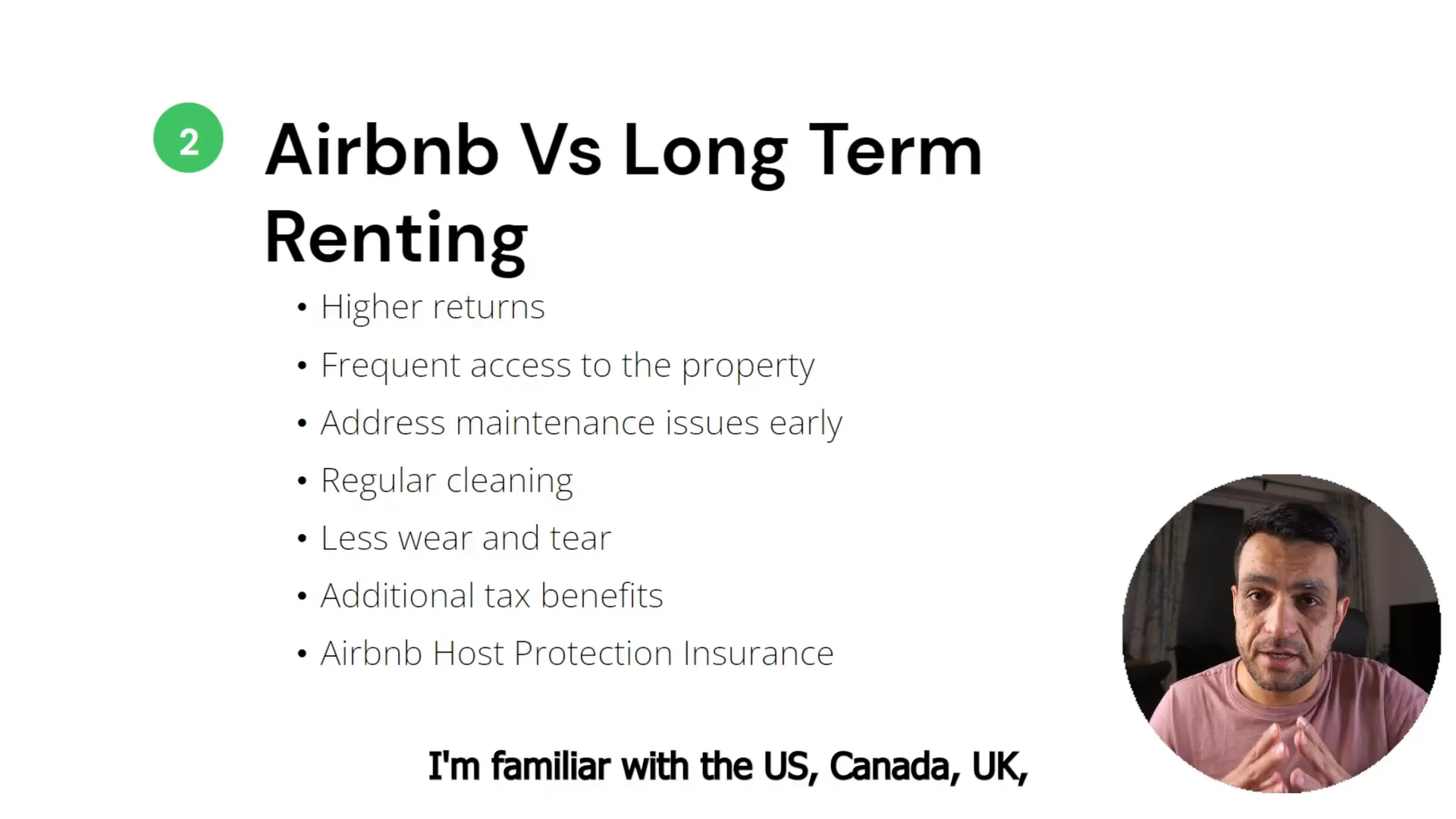
However, it’s essential to keep detailed records of all expenses to maximize these benefits.
Step 6: Leverage Airbnb Host Protection Insurance
When you host on Airbnb, you gain access to host protection insurance that covers damages and liability claims. This level of protection is generally not available with long-term tenants.
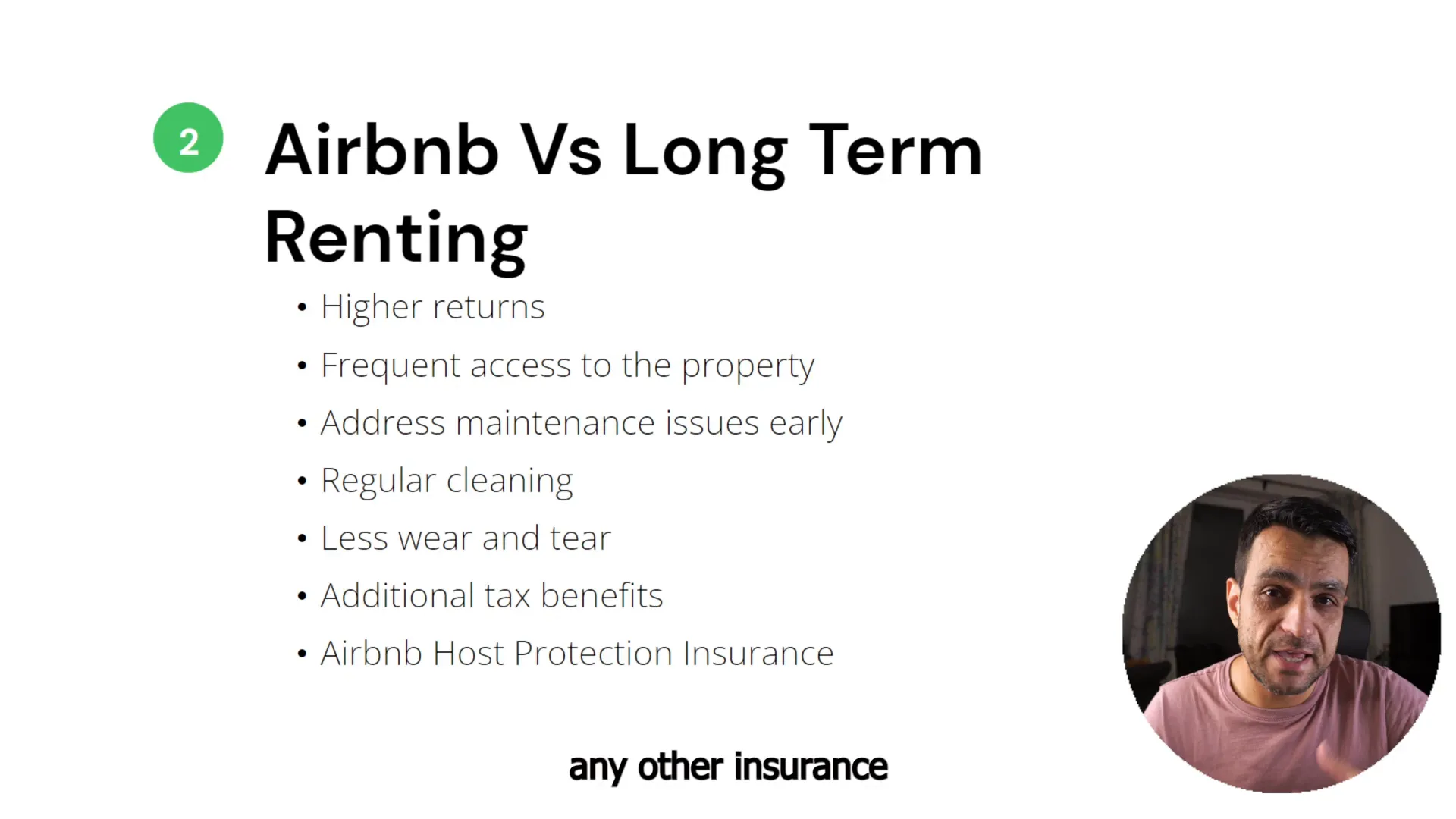
This insurance can provide peace of mind, knowing that you are safeguarded against potential financial losses due to guest-related issues.
Step 7: Flexibility in Hosting
Airbnb hosting allows you to try out short-term rentals without a long-term commitment. If it doesn’t work out, you can easily switch back to long-term renting.
This flexibility is a significant advantage, especially for new hosts testing the waters.
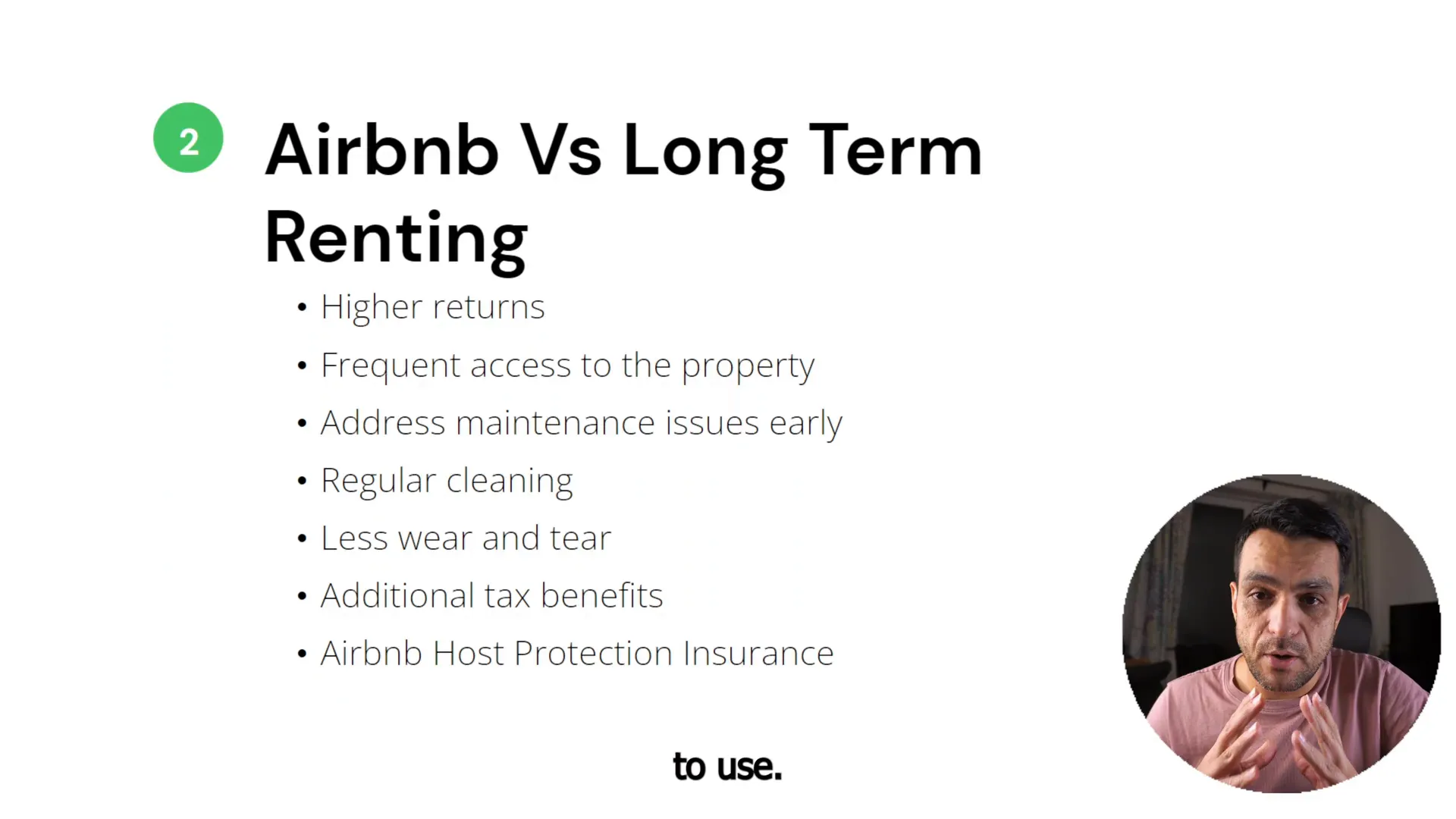
In contrast, long-term tenants can be challenging to remove if you decide to change your rental strategy.
Step 8: Enjoy the Community and Experience
Hosting on Airbnb can be a rewarding experience. You get to meet people from all over the world, share local insights, and create memorable experiences for your guests.
This interaction can make hosting a fulfilling venture, unlike long-term renting, which can feel more transactional.
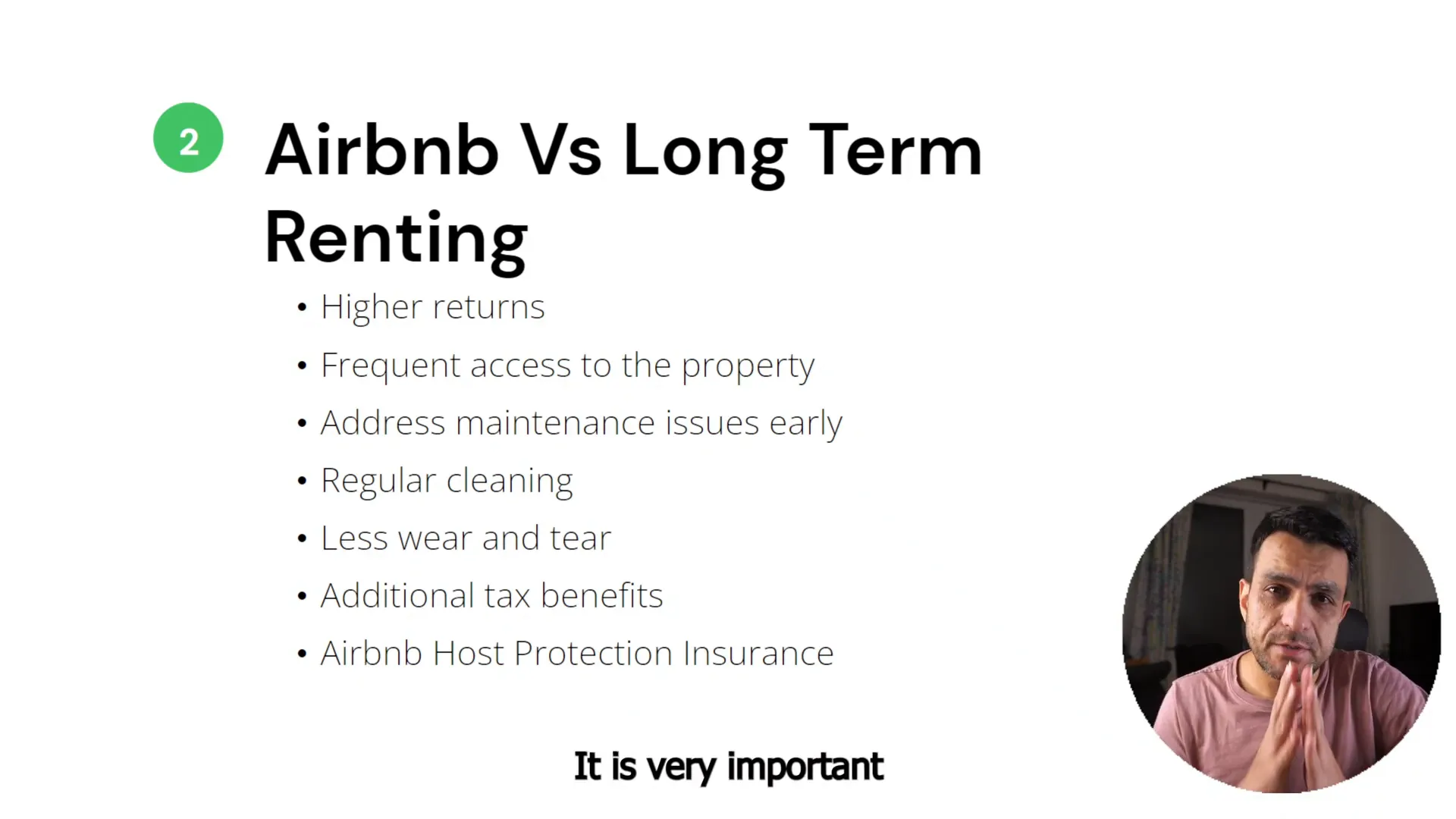
Many hosts find joy in curating experiences and creating a welcoming environment for their guests.
Step 9: Understand the Risks and Responsibilities
While there are numerous benefits to Airbnb hosting, it’s also essential to understand the risks involved. These include managing guest expectations, dealing with potential damages, and ensuring compliance with local regulations.
Being proactive and prepared can help mitigate these risks and lead to a successful hosting experience.
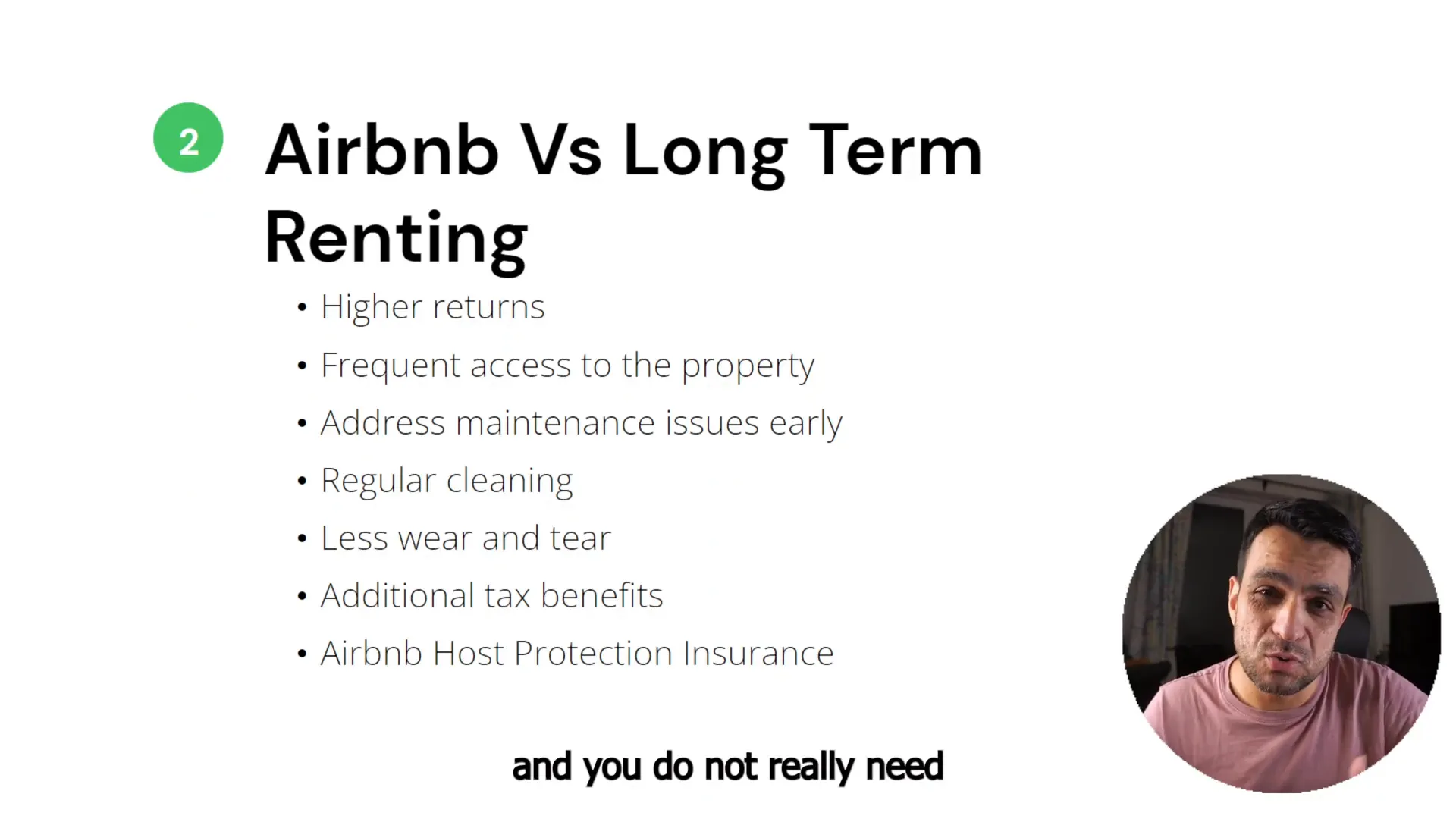
Make sure to stay updated on local laws regarding short-term rentals to avoid any legal complications.
Step 10: Engage with Your Guests
Providing excellent customer service can make all the difference in your Airbnb hosting journey. Engaging with guests, being responsive to their needs, and actively seeking feedback can enhance their experience and lead to positive reviews.
These reviews can significantly impact your booking rate, making it crucial to maintain high standards in hospitality.

Ultimately, satisfied guests are more likely to return and recommend your property to others.
Frequently Asked Questions (FAQs)
1. Is Airbnb hosting more profitable than long-term renting?
Yes, many hosts report earning significantly higher returns through Airbnb compared to traditional long-term renting.
2. What are the main risks of Airbnb hosting?
Risks include property damage, guest-related issues, and compliance with local regulations.
3. How can I maximize my Airbnb income?
Optimize your listing, engage with guests, and leverage seasonal pricing strategies to maximize your income.
4. What insurance do I need for Airbnb hosting?
Airbnb provides host protection insurance, but it’s advisable to have additional coverage for comprehensive protection.
5. Can I switch back to long-term renting if Airbnb doesn’t work out?
Yes, Airbnb hosting allows for flexibility, and you can easily switch back to long-term renting if desired.
In conclusion, understanding the advantages of Airbnb hosting can significantly impact your rental strategy. With higher returns, frequent access to your property, and various protections, Airbnb presents a compelling option for property owners. Embrace the journey, and happy hosting!









